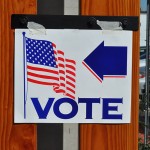Binders Full of Women . . . Arbitrators?
 The title of this post, as readers based in the United States surely know, refers to a statement from candidate Mitt Romney in a presidential debate. In response to a question from the audience, Romney gave the following account of his quest to identify women candidates for cabinet positions after he was elected governor of Massachusetts:
The title of this post, as readers based in the United States surely know, refers to a statement from candidate Mitt Romney in a presidential debate. In response to a question from the audience, Romney gave the following account of his quest to identify women candidates for cabinet positions after he was elected governor of Massachusetts:
“[A]ll the applicants seemed to be men. And I – and I went to my staff, and I said, ‘How come all the people for these jobs are – are all men.’ They said, ‘Well, these are the people that have the qualifications.’ And I said, ‘Well, gosh, can’t we – can’t we find some – some women that are also qualified?’ And – and so we – we took a concerted effort to go out and find women who had backgrounds that could be qualified to become members of our cabinet. I went to a number of women’s groups and said, ‘Can you help us find folks,’ and they brought us whole binders full of women.”
Amidst the hilarity that has since ensued (I recommend an Internet search for “binders full of women,” as well as a glance at this IntLawGrrls post), let’s pause to consider some data from the glamorous world of international arbitration.

